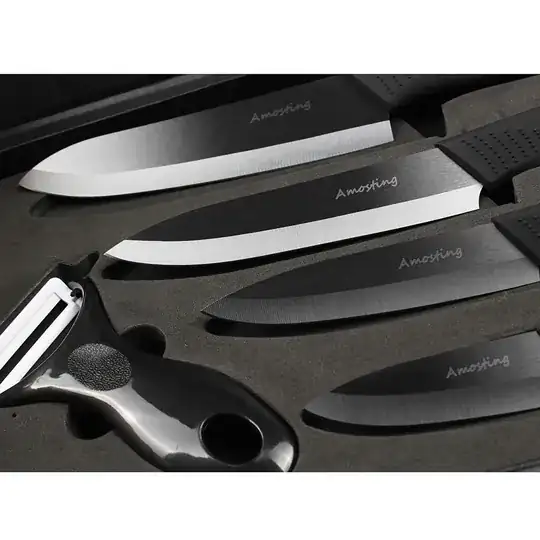Disclaimer: I work for a company that sells steel knives, and am a little bit biased.
I agree with others, ceramic blades are stronger than usual steel but unfortunately they are also more fragile because of being more brittle. That means that if you drop a ceramic knife or attempt to cut bone or frozen foods with one, it can break or chip.
Unlike steel knives which can be used for various slicing/dicing/chopping tasks, ceramic knives are limited in use mainly to slicing fruits, vegetables and boneless meats (generally - soft stuff).
According to some manufacturers, you can slice cheese with a ceramic knife, but I wouldn't believe them.
Different styles of steel knives affect function when it comes to boning, slicing or dicing. For instance, you would use a more flexible boning knife to debone chicken or filet fish (Deba type). And a Santoku or Nakiri knife is ideal for chopping, dicing and slicing onions, vegetables and numerous other cutting tasks.
Gyuto - a chef's knife is best for carving, slicing and so on. There's quite an assortment of blade lengths, styles and knife features when it comes to steel knives. There's also a diversity of knife handles.
Almost none of our customers (professional chefs) own a ceramic knife, they find it a worse option. But of course, if you have the choice between a cheap ceramic knife and a cheap steel knife, get the ceramic one.
However, if budget is not an issue: get a good Japanese knife. These are expensive, but well worth it if you take proper care of them (never put them in the dishwasher, always dry them after wash).
Hope this helps!
